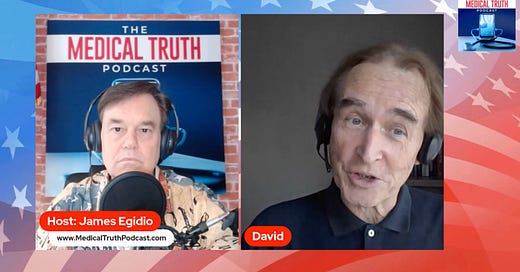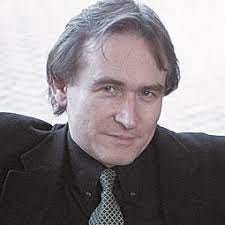Meet Dr. David Healy
Certainly, Dr. David Healy has been a prominent voice in the field of psychiatry, shedding light on critical issues within the healthcare system, particularly concerning the use of SSRIs (Selective Serotonin Reuptake Inhibitors) and their impact on individuals. As a psychiatrist, scientist, and psychopharmacologist, Dr. Healy's journey began with a keen interest in understanding how the brain integrates with the mind.
With roots in Dublin, Ireland, Dr. Healy pursued medicine and furthered his studies at Cambridge University. His early work delved into the serotonin system, providing insights into the bio babble surrounding SSRIs. Even before these drugs became widely known, pharmaceutical companies recognized Dr. Healy's expertise, making him a key communicator between the industry and doctors unfamiliar with these groundbreaking medications.
A former secretary of the British Association for Psychopharmacology, Dr. Healy has an extensive body of work, including over 230 peer-reviewed articles and 25 books. His notable works include "The Antidepressant Era" and "The Creation of Psychopharmacology" from Harvard University Press, "Let Them Eat Prozac" from New York University Press, and "Mania" from John Hopkins University Press. Among his impactful publications is "Pharmageddon," but perhaps his most significant contribution is "Shipwreck of the Singular: Healthcare's Castaways," documenting how medical advancements intended to improve life expectancies have, in some cases, led to shortened lifespans.
Dr. Healy's appearance on the Medical Truth Podcast, hosted by James Egidio, focused on a crucial issue: post-SSRI sexual dysfunction (PSSD). The discussion unveiled the hidden realities of these widely prescribed antidepressants, revealing how they can impact individuals' sexual functions long after they cease using the medication.
During the podcast, Dr. Healy highlighted the paradoxical nature of SSRIs. While initially designed to address mental health concerns, they can also induce suicidal thoughts and sexual problems. He emphasized the challenges individuals face when trying to communicate these issues to healthcare professionals who often attribute the symptoms to underlying mental health conditions rather than acknowledging the role of the medication.
Dr. Healy described PSSD as a condition where individuals, after discontinuing SSRIs, experience a range of sexual dysfunctions, including genital numbness, decreased libido, and emotional numbness. He underscored the lack of proper disclosure from pharmaceutical companies regarding the potential sexual side effects of these drugs, leaving patients uninformed about the risks they might face.
Furthermore, the conversation touched on the dependency created by SSRIs, which can make withdrawal challenging for many individuals. Dr. Healy highlighted the difficulty some patients encounter when attempting to taper off these medications, with withdrawal symptoms often intensifying instead of abating.
The discussion expanded to address the widespread use of polypharmacy, where patients are prescribed multiple psychotropic medications simultaneously, creating a complex interplay of drugs with conflicting effects. This practice, driven by the pharmaceutical industry, was depicted as contributing to a cascade of prescriptions rather than addressing the root causes of mental health issues.
In drawing parallels between the thalidomide scandal of the past and the contemporary issues with SSRIs, Dr. Healy urged a critical reevaluation of medical practices. He emphasized the need for increased awareness, informed consent, and a more discerning approach to psychiatric medications to prevent potential harm.
Dr. David Healy's insights continue to challenge conventional narratives within the healthcare system, advocating for transparency, patient-centered care, and a reevaluation of the risks and benefits associated with psychiatric medications.










Share this post